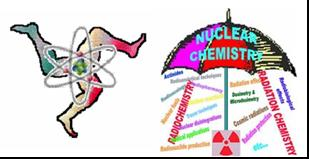Speaker
Prof.
Turan Ünak
(INCS)
Description
The earthquakes and tsunami, which occurred in Japan on 11th of March 2011, damaged the Fukushima Nuclear Power Plants; resulting in a new global nuclear catastrophe, 25 years after Chernobyl. This is an extremely unlucky nuclear event, and will lead to very serious influences on the global nuclear programs including the educational programs on the field of nuclear science and technology. First, this will create good and new materials for anti-nuclear lobbies and they will use this opportunity for oppressing the political authorities to abandon governmental nuclear power programs. Of course, similar results were envisaged after Chernobyl, and only 25 years later, these could slightly be eliminated by the public; but, it seems that the elimination of the results of this second catastrophe will be much more difficult than they were for Chernobyl. Briefly, it can be concluded that the Fukushima catastrophe in Japan will support the concept of nuclear renaissance, which has been the heart of discussions on the scientific platform for several years. The basic principles of the concept of nuclear renaissance can be summarized as follows:
1) Nuclear energy production systems should eventually be non-proliferative of nuclear weapons,
2) Minimized long-lived wastes resulting from fuel cycle,
3) Good accordance with the environmentalist concepts, and so, easily accepted by the people. Now, the application of new safer technologies for construction of nuclear power plants should also be included into these basic principles of nuclear renaissance.
In this contribution, the Fukushima nuclear catastrophe and its probable scientific, technological, social influences, and the global learnings will be criticized, and the precautions in the field of nuclear education will be proposed.
Author
Prof.
Turan Ünak
(INCS)
